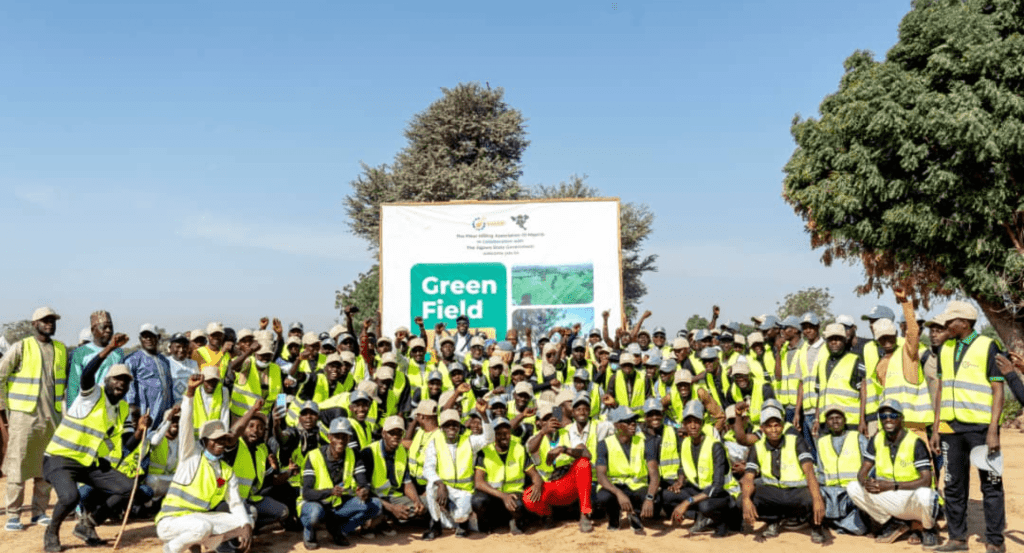The Federal Government of Nigeria has intensified efforts to boost wheat production by donating free agricultural inputs to the Jigawa State Government. This initiative aligns with the broader national strategy to enhance wheat sufficiency, with 118,000 hectares already cultivated across 11 states.
During the recent Green Field Day event in Jigawa, the Federal Ministry of Agriculture and Food Security (FMAFS) reaffirmed its commitment to supporting wheat farmers through improved seeds, fertilizers, and technical assistance. The event, organized in collaboration with the Flour Milling Association of Nigeria (FMAN), aimed at showcasing advancements in wheat farming and promoting best agricultural practices.
Jigawa State, recognized as a major wheat-producing region, is playing a crucial role in Nigeria’s push for self-sufficiency. Governor Umar Namadi reiterated his administration’s commitment to expanding wheat cultivation, ensuring that local farmers have access to the necessary resources. He highlighted ongoing partnerships with both government agencies and private sector players like FMAN to enhance productivity and create sustainable agricultural opportunities.
The Federal Government’s wheat production drive comes amid rising concerns over food security and import dependence. Nigeria currently imports a significant portion of its wheat, making local production expansion critical to reducing foreign exchange expenditure. Experts believe that the cultivation of 118,000 hectares across multiple states, including Jigawa, Kano, Kebbi, and Sokoto, will help bridge the demand gap and stabilize the country’s food supply.
FMAN, a key stakeholder in the initiative, has provided technical support and market access to local farmers, ensuring they receive fair pricing for their produce. The association’s collaboration with the Jigawa State Government reflects a growing private-public partnership model aimed at strengthening Nigeria’s agricultural sector.
As wheat farming continues to expand, stakeholders emphasize the need for sustained investment in irrigation, mechanization, and farmer training to maximize yields. With the combined efforts of federal and state governments, alongside private sector contributions, Nigeria is positioning itself for a future of wheat sufficiency and reduced import reliance.




















